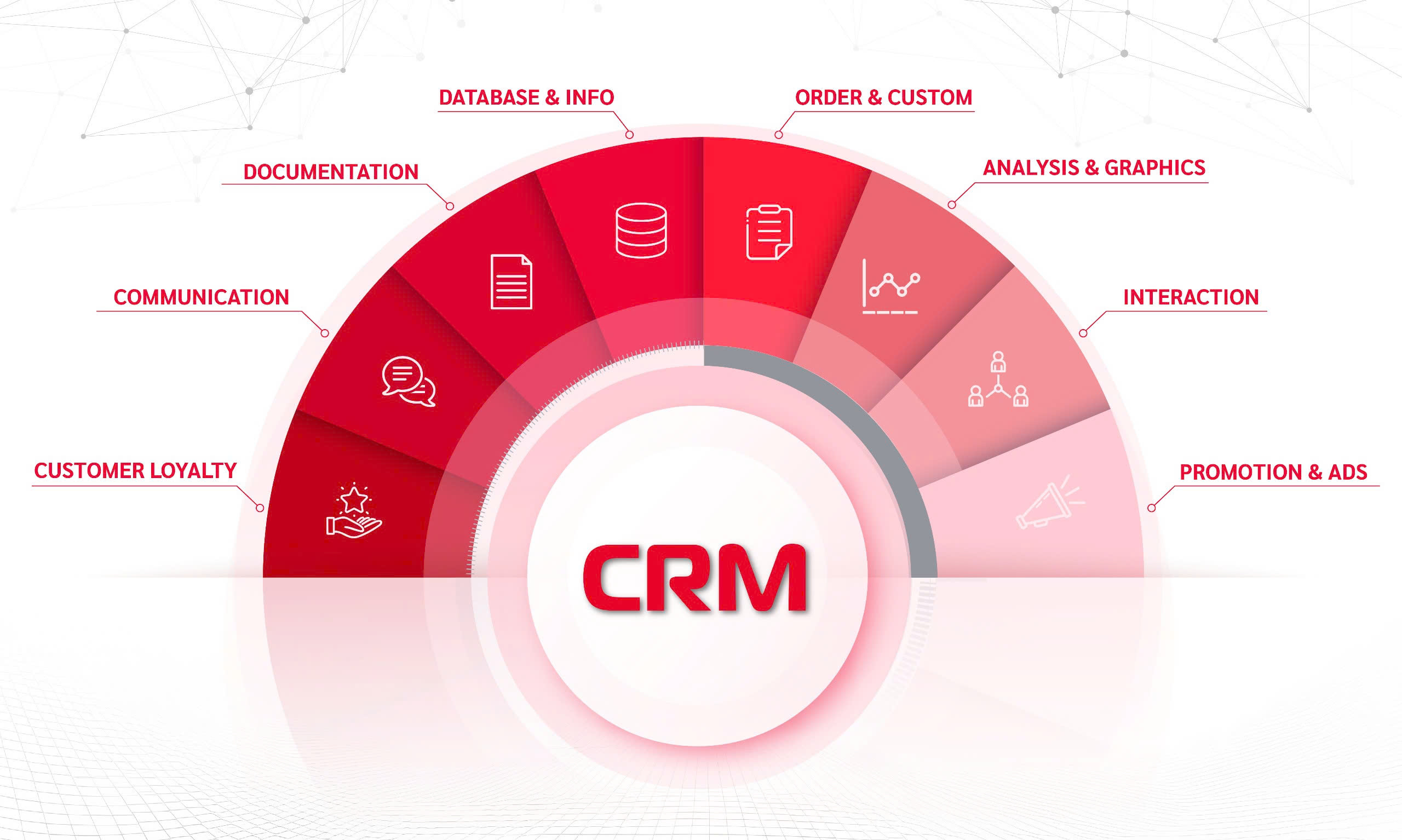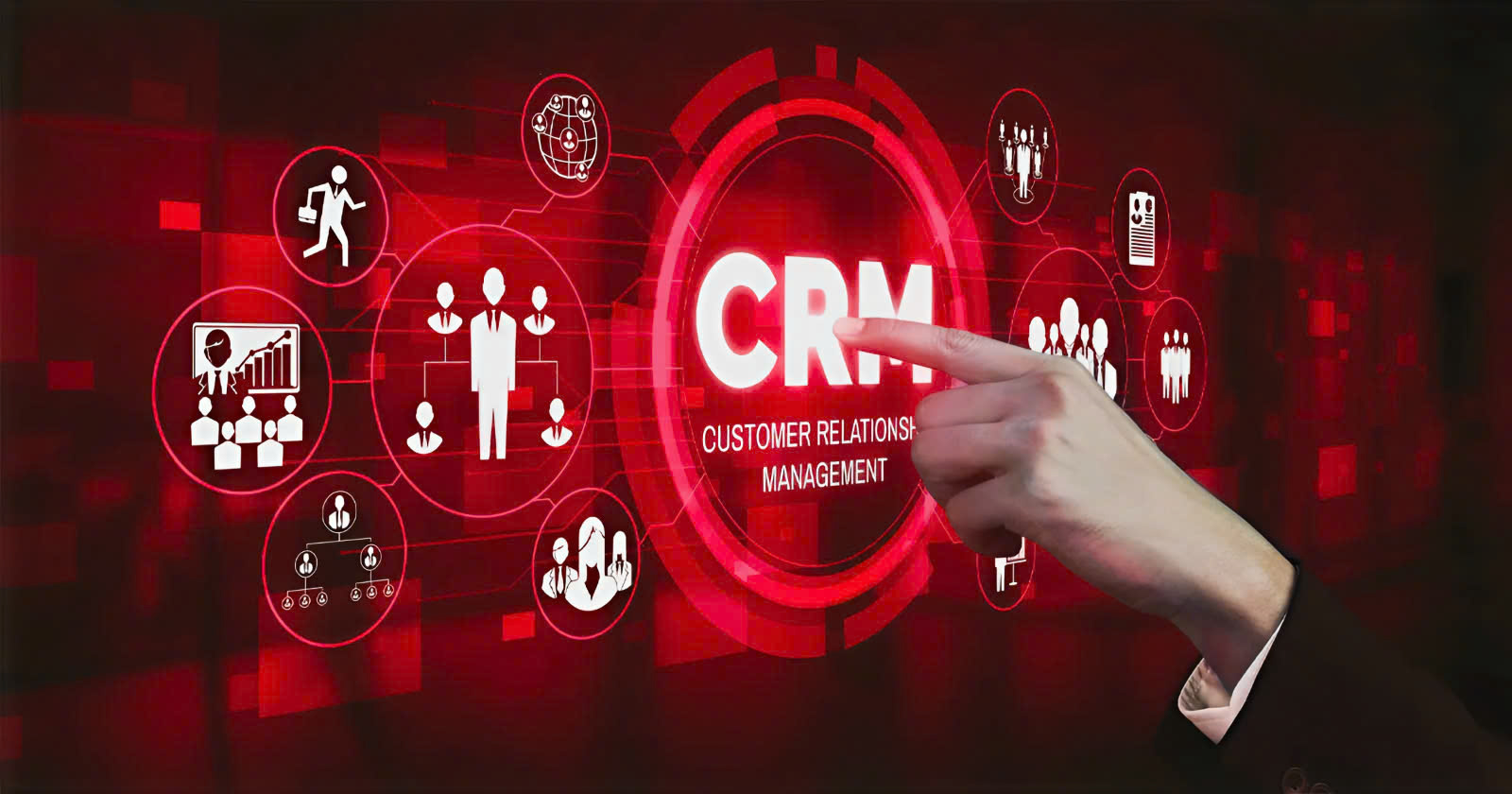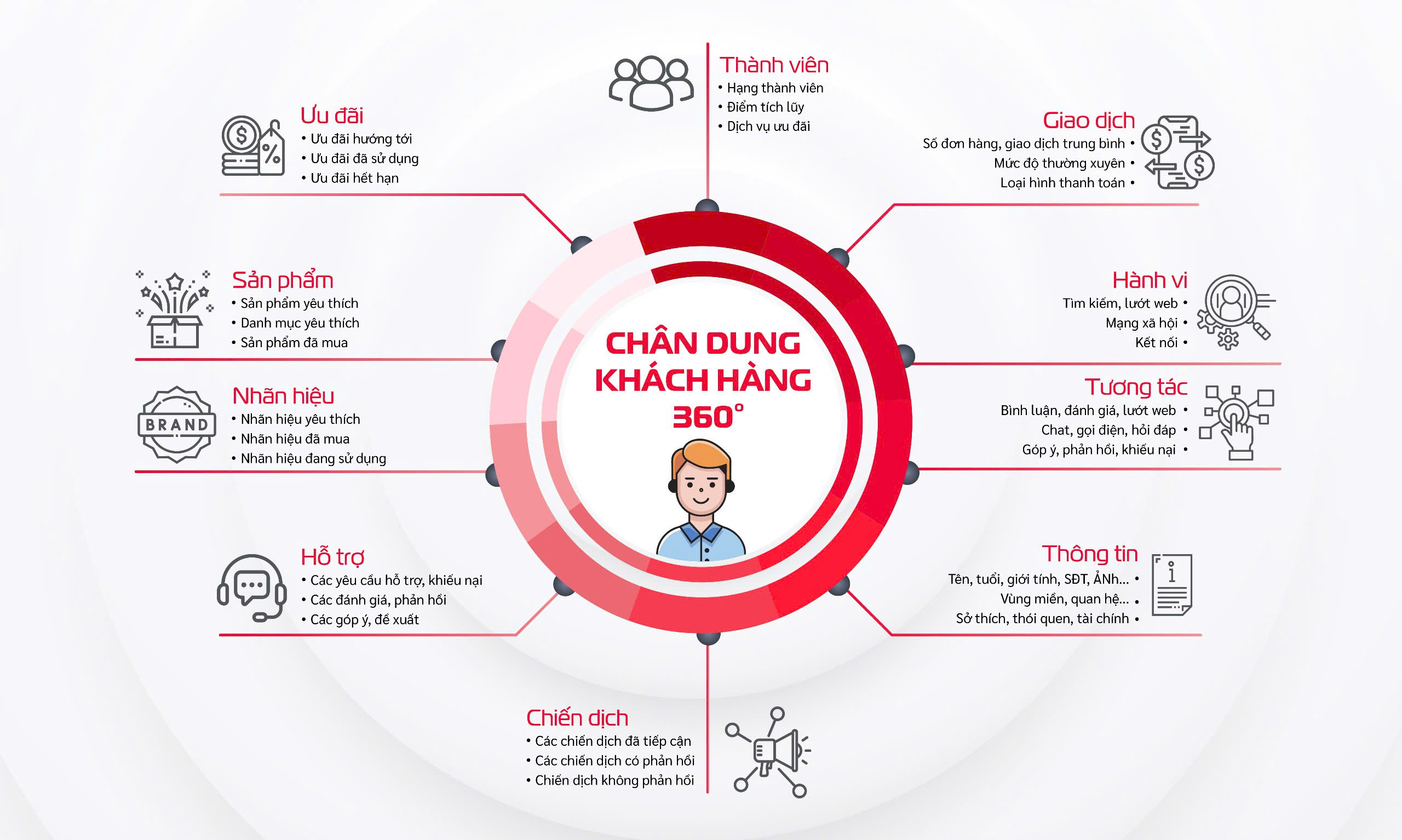HOW CRM SOFTWARE HELP IMPROVE BUSINESS EFFICIENCY
In an increasingly changing and competitive business environment, customer management and care are key factors contributing to sustainable development. of business. To optimize this process, CRM (Customer Relationship Management) software is increasingly becoming an indispensable tool. In this article, Viettel Software will help readers better understand CRM.

What is CRM?
CRM stands for Customer Relationship Management and is a set of activities including marketing, sales, and customer care that helps businesses build and develop sustainable relationships with their customers. This not only benefits relationship maintenance and development, but also improves business efficiency and establishes the brand of your business.
CRM software is a tool that helps businesses store, analyze, and report information about their customers, such as interactions, transactions, and access history. This allows businesses to comprehensively connect with customers, improve business processes, increase work efficiency, and increase revenue.
CRM systems integrate technology resources, such as platforms, software, and tools, and human resources to effectively manage customer relationships. The main purpose of this system is to help companies increase revenue, profits, and build their brand while strengthening relationships with customers.
Today, when we think of CRM, we often think of CRM software, a tool that centralizes all sales, marketing, and customer support activities into one platform. This software helps optimize business processes, policies, and human resources. However, for CRM software to work effectively, businesses need a complete and powerful CRM system to support it.
Her CRM benefits for companies
1. Automation of sales processOne of the biggest benefits of CRM software is its ability to automate the sales process. CRM helps businesses store, track, and process customer information systematically and automatically, rather than manually managing customer data using spreadsheets or emails.
Specifically, a CRM can help you automate the process of sending emails, calling reminders, scheduling customer appointments, and even managing the stages of the sales cycle. This not only reduces the workload of your sales team, but also allows them to focus on strategic tasks such as consulting and persuading customers.
2. Effective customer information managementSuccessful businesses don't just have a lot of customers, they understand their customers. CRM allows businesses to store and manage customer information from various sources such as emails, phone calls, social networks, and websites.
Through CRM, sales teams have easy access to the history of customer interactions so they can understand their customers' needs and desires. This allows businesses to build appropriate and highly personalized sales strategies, increasing the likelihood of order fulfillment and building lasting relationships with customers.
3. Improve teamwork performanceCRM software not only helps you manage customer information, but it also provides a platform for sales, marketing, and customer care teams to work together more effectively. Thanks to real-time information sharing capabilities, all departments within your company can access and update customer information synchronously.
This minimizes duplication of effort, optimizes information exchange, and ensures you never lose customers. When all team members have a clear understanding of customer information and transaction history, the decision-making process and customer feedback becomes faster and more effective.
4.Customer data analysisAnother key strength of CRM software is its ability to analyze customer data. CRMs provide detailed reports on customer behavior, sales, conversion rates, and the performance of each marketing campaign.
Through integrated analytical tools, businesses can clearly identify the strengths and weaknesses of their customer outreach strategies and adjust appropriate strategies for optimization. Business efficiency. Understanding this information allows businesses to not only focus on potential customers, but also to make strategic decisions based on real data, increasing the likelihood of success for sales campaigns.
5. Improving customer experienceProfessional and effective customer care is always a key factor in creating loyalty and encouraging repeat business. CRM software helps businesses track and record every interaction with a customer, thereby creating a personalized experience for each customer.
For example, through her CRM, a customer service staff member can collect requests and feedback from previous customers and make appropriate suggestions in the next interaction. . This makes your customers feel valued, increases trust, and increases your ability to maintain long-term relationships.
6. Marketing strategy optimizationCRM not only supports sales, but also plays an important role in marketing campaigns. By storing and analyzing detailed customer data, companies can create customized marketing campaigns for specific customer groups.
This allows businesses to optimize their marketing costs, focus on the right prospects, and increase conversion rates. CRM also allows businesses to track the effectiveness of each marketing campaign and make timely adjustments to achieve optimal results.
7. Enhanced multichannel interoperabilityIn the digital age, customer interaction is not limited to traditional channels such as phone and email, but also extends to social networking platforms and mobile applications. mobile phone and website. CRM helps businesses manage all customer interactions from multiple channels on a single platform and helps keep information synchronized and continuously updated.
This multichannel interaction capability allows businesses to capture and quickly respond to all customer needs, giving them a competitive advantage over other competitors.
8. Reduce costs and increase profitsOne of the most obvious benefits of CRM is that it helps businesses save on administrative and operational costs. Thanks to automation and effective information management, companies can reduce resources and time spent on manual tasks.
In addition, CRM increases your ability to close orders, retain customers, and optimize your sales process, resulting in higher profits. With a streamlined CRM strategy, companies can sustainably increase revenue without investing heavily in new resources.
CRM basic functions

1. 360 degree customer profile management
CRM gives businesses a comprehensive view of their customers through their 360-degree profile. All information about customers is stored in detail, from transaction history, behavior, and previous interactions, giving businesses a clear understanding of their customers' needs and wants.
 360-degree Customer View
360-degree Customer View
2. Manage customer interaction history
This feature helps store the entire communication history between a business and its customers through various channels such as emails, calls, messages, and social networks. This allows sales and customer care teams to better track and manage interactions and respond to customers faster.
3. Marketing campaign management
CRM helps businesses build and track marketing campaigns, from segmenting customers to personalizing messages to measuring effectiveness. Information such as conversion rates and interaction levels is also displayed, allowing businesses to quickly adjust their marketing strategies.
4. Managing work and customer commitments
This feature helps you track and schedule appointments and tasks related to your customers. Sales and customer service teams can easily manage their work schedules, be reminded of meetings, and ensure they don't miss any opportunities.
5.Management of customer contract list
CRM provides contract management tools that track the time and status of each contract from signature to expiration date. This gives businesses better control over the terms and duration of their contracts.
6. Product list management
Businesses can use Her CRM to manage product information such as price, description, and inventory. This ensures that your sales team always has clear information about your products when advising customers.
7.Order information management
All customer orders are stored and managed in detail in a CRM system. This allows businesses to track the status of each order from receipt, processing, and delivery, and ensure all information is updated accurately.
8. Managing incoming and outgoing calls
CRM helps you record and manage all incoming and outgoing calls from your customers. Employees can easily take notes and track calls, allowing them to more effectively manage interactions and customer care.
9.Customer Care Campaign Management
This feature helps companies organize and track after-sales customer care campaigns, from sending incentive information to customer surveys and resolving related issues. related to products and services.
10. Multichannel chat management for sales support
CRM integrates with many communication channels such as websites, social networks, and mobile applications, allowing businesses to manage and track customer conversations across any platform. This ensures a quick response and improves the customer experience.
11. User management, decentralization
CRM allows you to manage users and decentralize them by function within the system. This improves security and productivity by ensuring each employee has access to only the information and features that are important to them.
12. System monitoring
This feature provides the ability to monitor and track CRM system performance, from the amount of data processed to customer interactions, allowing businesses to assess and optimize operational efficiency. Helpful.
13. Search warranty and sales policy
CRM helps you store and quickly retrieve policies related to warranties and sales, enabling employees to provide accurate and timely information to customers when needed. Masu.
14. Statistical reports: graphs, lists
CRM systems provide detailed statistical reports through graphs and lists to help businesses track sales performance, customer behavior, and the effectiveness of marketing campaigns. . These reports help companies make decisions based on real data, thereby improving business strategies.
Thanks to these diverse and comprehensive features, CRM becomes an important tool that helps companies manage all aspects related to customers and business activities and increase revenue. Strengthen competitiveness and sustainable development.
To achieve optimal efficiency, it is very important to select and implement CRM software that matches the characteristics of your business. At the same time, companies must maintain employee training and continually optimize the process of using CRM to maximize the system's potential. With Viettel Software's CRM solutions, businesses not only have access to powerful management tools, but also comprehensive support in customizing the software according to their specific needs, making the software suitable for all industries. It is guaranteed that there will be.
Viettel Software's CRM allows companies to increase work efficiency and optimize all aspects of business operations, from customer management to marketing and aftercare. Forever. Moreover, the solution also helps create a long-term competitive advantage thanks to Viettel's flexibility, advanced technology and professional support services.
For further advice on CRM software system development, please contact our hotline (+84)988889446 or email contact@viettelsoftware.com.




